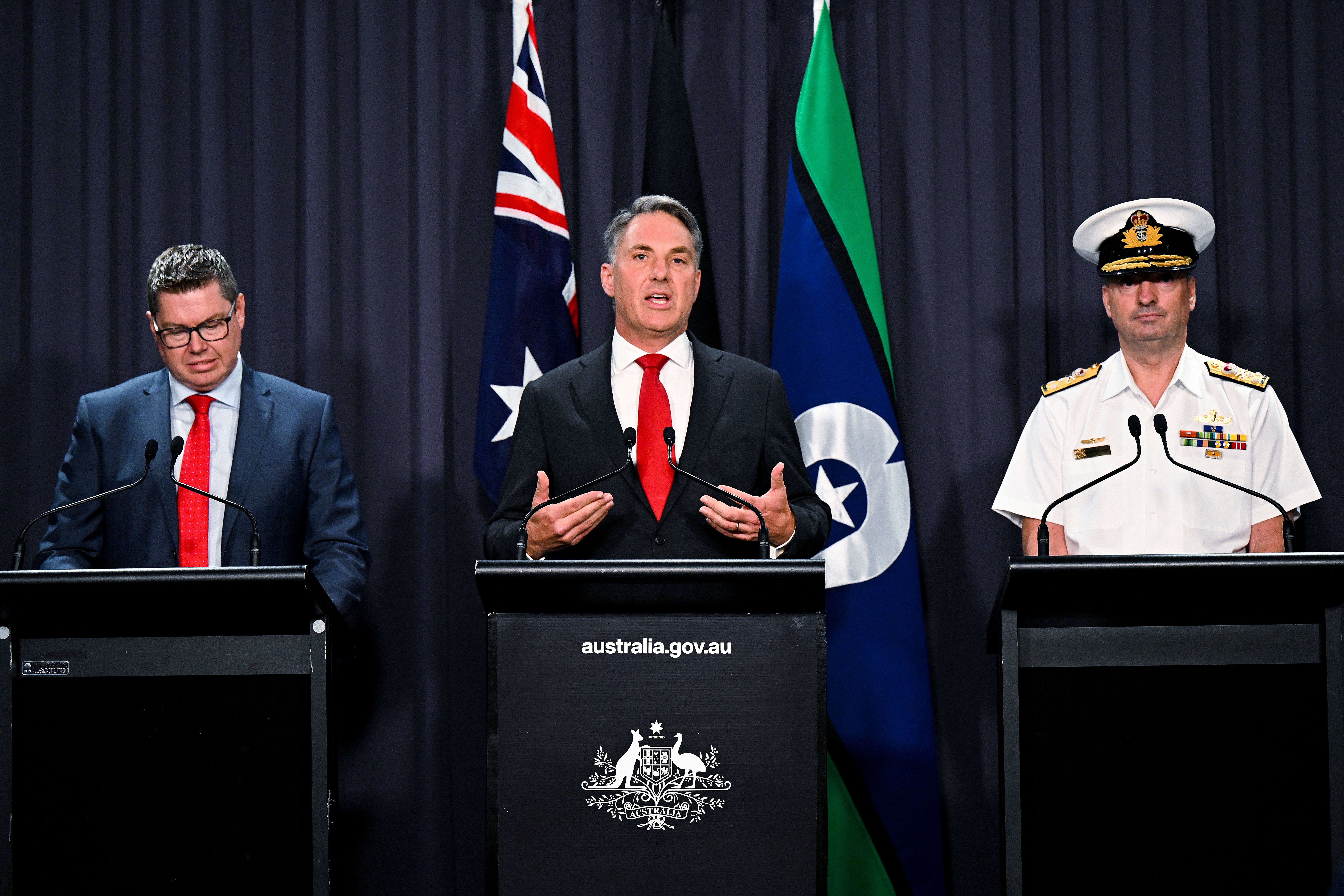Australia says nuclear subs needed to counter militarization
Australia’s defense minister says a deal to buy nuclear-powered attack submarines from the United States was necessary to counter the biggest conventional military buildup in the region since World War II

Your support helps us to tell the story
From reproductive rights to climate change to Big Tech, The Independent is on the ground when the story is developing. Whether it's investigating the financials of Elon Musk's pro-Trump PAC or producing our latest documentary, 'The A Word', which shines a light on the American women fighting for reproductive rights, we know how important it is to parse out the facts from the messaging.
At such a critical moment in US history, we need reporters on the ground. Your donation allows us to keep sending journalists to speak to both sides of the story.
The Independent is trusted by Americans across the entire political spectrum. And unlike many other quality news outlets, we choose not to lock Americans out of our reporting and analysis with paywalls. We believe quality journalism should be available to everyone, paid for by those who can afford it.
Your support makes all the difference.Australia's defense minister said Tuesday a deal to buy nuclear-powered attack submarines from the United States was necessary to counter the biggest conventional military buildup in the region since World War II.
Australian officials said the deal will cost up to $245 billion over the next three decades and create 20,000 jobs. It comes at a time that China is rapidly building up its own military.
Australian Defense Minister Richard Marles said it had made a huge diplomatic effort for months ahead of Monday's announcement of the deal, including making more than 60 calls to regional and world leaders. Australia had even offered to keep China in the loop, he said.
“We offered a briefing. I have not participated in a briefing with China," Marles said.
Asked by reporters if China had rejected the briefing or responded at all, Marles replied: “I'm not aware of that response.”
Without specifically mentioning China, Marles said Australia needed to respond to the military buildup in the Pacific.
“A failure to do so would see us be condemned by history,” he said.
China has said the deal poses serious nuclear proliferation risks and stimulates the arms race.
“We urge the U.S., Britain and Australia to abandon the Cold War mentality and zero-sum game, faithfully fulfill their international obligations and do more to contribute to regional peace and stability,” Foreign Ministry spokesperson Mao Ning said during a daily briefing Thursday.
Marles said Australia intended to increase its military capabilities and to spend more on defense in the future, something it wanted to be transparent about.
“You know, our concern about other military buildups is that they happen in a manner which is opaque, and where neighbors are left uneasy as to why it is occurring,” he said. “That is why we have gone to such an effort to make clear exactly why we are taking the steps that we’re taking.”
U.S. President Joe Biden announced the deal in San Diego along with Australian Prime Minister Anthony Albanese and British Prime Minister Rishi Sunak. Albanese said the agreement “represents the biggest single investment in Australia’s defense capability in all of our history.”
Australia is buying three, and possibly up to five, Virginia-class boats as part of deal. Under the so-called AUKUS partnership, a future generation of submarines will be built in Britain and in Australia with U.S. technology and support.
Australia estimates the deal will cost it between 268 billion and 368 billion Australian dollars ($178-$245 billion).
Biden emphasized the ships would not carry nuclear weapons of any kind. Albanese has said he doesn't think the deal will sour its relationship with China, which he noted had improved in recent months.
The secretly brokered AUKUS deal included the Australian government’s cancellation of a $66 billion contract for a French-built fleet of conventional submarines, which sparked a diplomatic row within the Western alliance that took months to mend.
Marles on Tuesday appeared eager to move on from that.
“In an operational sense, we are building our relationship with France, with a much greater tempo of military exercises, with much greater access to our bases on the Australian continent but also French bases in the Pacific and indeed in the Indian Ocean,” he said.